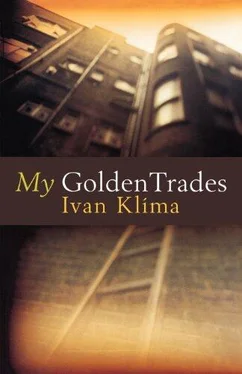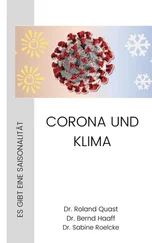Ivan Klima - My Golden Trades
Здесь есть возможность читать онлайн «Ivan Klima - My Golden Trades» весь текст электронной книги совершенно бесплатно (целиком полную версию без сокращений). В некоторых случаях можно слушать аудио, скачать через торрент в формате fb2 и присутствует краткое содержание. Год выпуска: 1998, Издательство: Granta UK, Жанр: Современная проза, на английском языке. Описание произведения, (предисловие) а так же отзывы посетителей доступны на портале библиотеки ЛибКат.
- Название:My Golden Trades
- Автор:
- Издательство:Granta UK
- Жанр:
- Год:1998
- ISBN:нет данных
- Рейтинг книги:4 / 5. Голосов: 1
-
Избранное:Добавить в избранное
- Отзывы:
-
Ваша оценка:
- 80
- 1
- 2
- 3
- 4
- 5
My Golden Trades: краткое содержание, описание и аннотация
Предлагаем к чтению аннотацию, описание, краткое содержание или предисловие (зависит от того, что написал сам автор книги «My Golden Trades»). Если вы не нашли необходимую информацию о книге — напишите в комментариях, мы постараемся отыскать её.
My Golden Trades — читать онлайн бесплатно полную книгу (весь текст) целиком
Ниже представлен текст книги, разбитый по страницам. Система сохранения места последней прочитанной страницы, позволяет с удобством читать онлайн бесплатно книгу «My Golden Trades», без необходимости каждый раз заново искать на чём Вы остановились. Поставьте закладку, и сможете в любой момент перейти на страницу, на которой закончили чтение.
Интервал:
Закладка:
they didn't notice me come in. I was somewhat surprised, for I was used to finding the programmers in their own cubicles or, when they managed to get some time on the mainframe computer in Strašnice, on Letni or in Vršovice, they were scarcely here at all. Mr Vandas had just successfully cut in on three cars in a row while the onlookers breathed sighs of relief, and it was then I understood that they'd all gathered here to show him their support, since his wife had just had an operation.
The moment I stepped into the room, I was aware of an unusual atmosphere full of kindness and compassion. As a matter of fact, whenever these people asked me to deliver something that it was part of my job to deliver anyway, they always asked first whether they weren't putting me to too much trouble, then hastened to assure me they were in no hurry and if it was inconvenient now, I could bring them the tapes tomorrow. The kindly Miss Kosinová was certainly one of the reasons for this exceptional atmosphere. Several times, when I saw her dispirited by the sheer number of impediments she and her colleagues faced, I wanted to tell her that she was creating something far greater than a bunch of programmes. Moreover, the work they were doing here was important. To make light of the impediments was to make light of the work.
At last Mr Klíma noticed me and asked if I wanted to sit down at his computer and practise WordPerfect for a while, now that his terminal was free. So as not to offend him, I agreed and he led me away to his office. Usually Mr Klíma didn't talk much, but on the way he told me they'd operated on Mrs Vandas the night before. Everything had turned out well, she was in intensive care now but they expected to transfer her to a regular ward the next day. He
switched on his computer, stepped back and with a smile of encouragement, said, 'It's all yours.'
The first time he sat me down at his computer, he had complained that they only had two terminals here, and that this was one of them. Two computers for twenty programmers! 'In the West, anyone who wants can buy something like this for a month's wages. But they can't import them because of the embargo. And for my monthly wages, the most I could buy over there would be a box of diskettes. This computer,' he informed me, 'was smuggled here all the way from Taiwan.'
If that were the case, I asked, why couldn't we manufacture computers here ourselves?
He explained to me that we could probably manage the electronics, but we'd still have to import hard disks. They aren't embargoed, but no company can get the currency to buy them. And Mr Klíma waved his hand dismissively, as though he were driving away an oppressive dream. I had only a vague notion of what he meant by a hard disk, but I understood that the programmers' work was not proceeding according to plan. In that, at least, it was not unlike the work of most of us have to do.
I sat down at the keyboard, slipped a system disk into the upper drive and a file disk into the lower. Messages began appearing on the screen, following one another so rapidly that I had no time to read them. When I got the A> sign, I wrote, as I had been instructed several days before, A: WP, and then I sent this strange code into the machine's innards by pressing the key marked 'Return'. The diabolical machine immediately announced, in English: 'Bad Command or File Name!' But it offered no advice about what to do. I repeated my command, and the machine,
with astonishing speed, repeated its message. I stared helplessly at the screen and waited, afraid to turn around because I was certain I'd forgotten something quite basic and, in asking Mr Klima's advice, would somehow betray the kind effort he had exerted on my behalf. 'You forgot to replace the system disk with the programme disk,' he said finally, behind me. 'How is it supposed to call up WordPerfect if it doesn't have it?'
I changed the disks and sent my commands to the computer, which now whirred and clicked, reminded me that it was from Utah (where, unlike Spain and Italy, I had once been) and then presented me with a blank screen, an invitation to write.
So I wrote: Dear Mr President
I looked around. A satisfied smile appeared on Mr Klima's round, clean-shaven face. 'Go ahead and write whatever you feel like,' he said. 'We can wipe it out later.' And he sat down at his desk and began to leaf through some computer print-outs.
You are probably used to getting a lot of requests and complaints, I continued. I didn't like this introductory sentence, so I gave the computer instructions to wipe it out and it did so with a speed that still astonished me. Then I wrote:
I know that you are very busy, but I am not writing with a request or a complaint. I would only like to express the sympathy, or rather the regret, that you cause me to feel. I remember your inauguration ceremony, when you took your oath of office and were evidently moved to tears. At the time, I thought how hopelessly isolated you must be if you had no one around you to point out how inappropriate your
tears were. After all, you accepted your position at a time so full of sorrow and despair that it brought shame rather than glory to your name. I have tried, several times, to listen to your speeches, for I was curious about the message you wanted to convey to us. After all, I am a citizen of this country and I also try (though I am forbidden to do so) to convey something to the people who live here. So I listened to you and shared with you the horror, the despair of a man who accedes to the throne and surveys his invisible subjects, to whom he may, indeed to whom he must, convey something, and at the same time does not know what to say because he has nothing to say.
I remembered the flowers that by now must have been wilting in my bag. I quickly commanded the computer to wipe out the text, and I went to look for Mr Vandas. I found him in the hall with Miss Kosinová, who, perhaps because she doesn't have children of her own, behaves all the more maternally to those around her. They were giving food to his two little girls.
'Do you know what?' he asked, rinsing out the milk bottle. 'They've just registered the eight millionth chemical. Wait a minute, I'll show it to you.'
What he brought was not the chemical itself, just a piece of paper on which he had written: 2-(4-chloro-5-etocy-2fluorophenyl)-4,5,6,7,-tetrahydro-3methyl-2 H-indazol.
'How long can they go on getting away with this?' he asked.
As if summoned to answer that gloomy question, the youthful Mr Bauer appeared in the hall. I knew him as a quiet man whose glum, rather dreamy expression reminded
me of that of a poet, but now he announced loudly: 'I've just finished my calculations. In five years, the Jeseníky Mountains will be kaput, and in seven, the Beskyds and the Šumava.'
Mr Vandas put the flowers next to a picture of his wife. 'How about the Tatras?' he asked.
'I don't have the Tatras, the Slovaks are doing them. If it wouldn't be too much trouble,' he said, turning to me, 'I have some print-outs here that should go to Dr Myslivec in Komořan. But there's no hurry; he'll be at lunch now anyway. '
'Of course,' I said.
His elder daughter handed me a piece of paper with a drawing on it. There were three green trees, with coloured birds flying among them, and several animals grazing on the grass, of which I could only safely identify a giraffe. There were no people.
'What's this you've drawn?'
'It's the Garden of Eden,' she said. 'It's for Mama, when she comes home.'
'Can't those forests be saved?' I asked Bauer.
'They could,' Bauer explained. 'But people would have to die out first. Of course, if this keeps up, they'll die out anyway, but not before they destroy everything.'
'The process could be slowed down,' Miss Kosinová explained to me, 'if we invested in conservation, but there's no money, and there's going to be less and less. It's enough to make you despair.'
Читать дальшеИнтервал:
Закладка:
Похожие книги на «My Golden Trades»
Представляем Вашему вниманию похожие книги на «My Golden Trades» списком для выбора. Мы отобрали схожую по названию и смыслу литературу в надежде предоставить читателям больше вариантов отыскать новые, интересные, ещё непрочитанные произведения.
Обсуждение, отзывы о книге «My Golden Trades» и просто собственные мнения читателей. Оставьте ваши комментарии, напишите, что Вы думаете о произведении, его смысле или главных героях. Укажите что конкретно понравилось, а что нет, и почему Вы так считаете.












